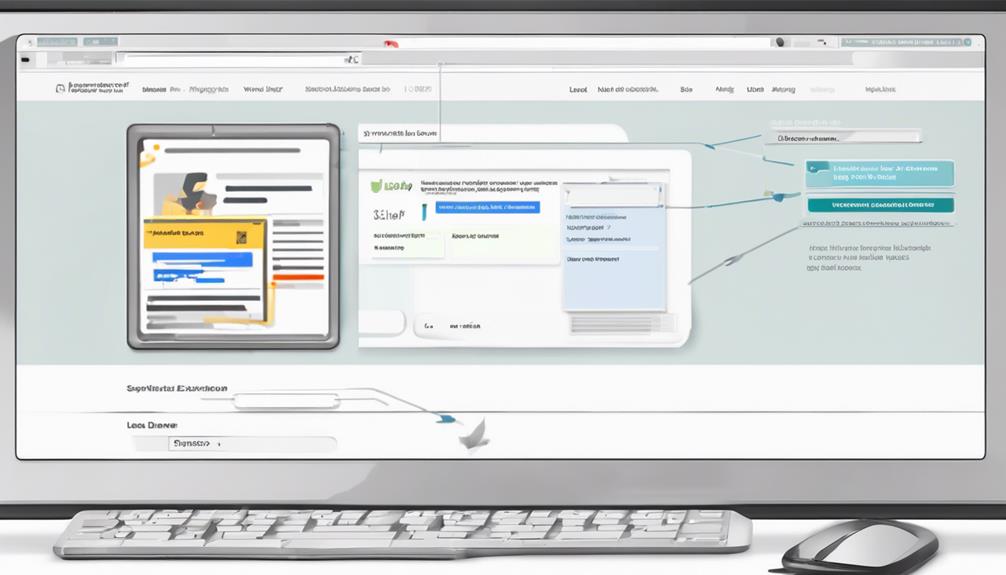To choose a lead data extraction service, you want to ensure that your choice aligns perfectly with your organization’s needs. But how do you guarantee that the service provider you choose can deliver on all fronts, from data security to performance? Let’s explore some key factors that will help you navigate this decision-making process effectively and find the ideal lead data extraction service for your business.
Identify Your Needs
When selecting a lead data extraction service, the initial step is to clearly define your requirements. Data extraction is a crucial aspect of any business operation, and choosing the right service can significantly impact your efficiency and success. Begin by evaluating the specific data extraction needs of your organization. Consider the volume of data you need to extract, the frequency of extraction, the sources of data, and the level of complexity involved.
Next, research various service providers to determine which ones specialize in the type of data extraction you require. Look for providers with a proven track record in service selection and a reputation for delivering accurate and timely results. Consider factors such as the technology they use, their level of customer support, and the scalability of their services to accommodate your future needs.
Determine Your Budget
Determining your budget is a critical step in the process of selecting a lead data extraction service. To start, conduct a cost analysis to understand your financial capabilities. This involves aligning your budget planning with the costs associated with different service providers. Prioritize features based on your needs assessment to ensure you are investing in functionalities that are essential for your business. Understanding your budget constraints will help narrow down options and focus on services that offer the best value for your money.
When prioritizing features, consider the must-have functionalities that align with your needs assessment. This will help you avoid overspending on unnecessary extras while ensuring that you are getting the core capabilities required for effective lead data extraction. By setting a clear budget and prioritizing features accordingly, you can make a more informed decision when selecting a lead data extraction service that meets your requirements without breaking the bank.
Research Various Providers
To effectively narrow down your options and make an informed decision when choosing a lead data extraction service, the next step is to research various providers. Begin by compiling a list of potential providers and conducting a thorough provider comparison. Look at the service features offered by each provider to determine which align best with your business needs. Consider aspects such as data sources, extraction methods, data quality, scalability, and pricing structures.
When researching providers, pay close attention to the types of data they specialize in extracting and whether they offer customization options to suit your specific requirements. Evaluate the level of customer support provided, as responsive and knowledgeable support can be crucial in resolving any issues or queries promptly. Additionally, inquire about the security measures in place to safeguard sensitive data during the extraction process. By comparing different providers based on their service features, you can identify the one that offers the most comprehensive solution for your lead data extraction needs.
Evaluate the Provider’s Reputation
Evaluating the provider’s reputation is a critical step in selecting a lead data extraction service that meets your business requirements. To ensure the trustworthiness of a service provider, conduct a thorough assessment of their reputation in the industry. Start by researching customer reviews online. These reviews offer valuable insights into the experiences of other businesses that have used the service. Look for patterns in the feedback, paying particular attention to comments about the provider’s reliability, quality of data extraction, and customer support.
Customer reviews can highlight both positive and negative aspects of the service, helping you make an informed decision. Additionally, consider the overall reputation of the provider within the industry. Look for any awards, certifications, or partnerships that demonstrate their credibility and expertise. A reputable provider will have a track record of delivering on their promises and maintaining high standards of service. By conducting a thorough reputation evaluation, you can select a lead data extraction service that aligns with your business goals and values.
Check the Provider’s Data Security Measures
When selecting a lead data extraction service, scrutinize the provider’s data security measures. Assess their security protocols to ensure data protection, review encryption standards for secure transmission, and examine their privacy policy for adherence to regulations. Prioritizing these aspects can help safeguard your sensitive information and mitigate potential risks.
Security Protocols Evaluation
Consider the critical aspect of security protocols when evaluating a lead data extraction service. Security compliance and data protection are paramount when entrusting your sensitive information to a third-party service. To ensure the safety of your data, thoroughly examine the security measures put in place by the extraction service provider.
Start by reviewing the provider’s security compliance certifications and standards. Look for industry certifications like ISO 27001, which demonstrate a commitment to maintaining stringent security protocols. Additionally, inquire about the provider’s data protection policies and procedures. A reputable service should have clear protocols for data encryption, access control, and regular security audits.
Evaluate the provider’s measures for securing data during extraction, processing, and storage. Ensure that they have robust mechanisms in place to safeguard against unauthorized access, data breaches, and other security threats. By carefully assessing the security protocols of a lead data extraction service, you can make an informed decision that prioritizes the protection of your valuable data.
Encryption Standards Assessment
To assess the encryption standards of a lead data extraction service, delve into the provider’s data security measures. When evaluating a service’s encryption standards, here are three key elements to consider:
- Encryption Protocols: Look for details on the encryption algorithms used by the service. Strong encryption standards like AES (Advanced Encryption Standard) with 256-bit keys provide robust data protection.
- Data Transmission Security: Assess how the service secures data during transmission. Ensure that they utilize secure protocols such as SSL/TLS to encrypt data as it moves between systems, safeguarding it from interception.
- Data Storage Encryption: Inquire about how the provider encrypts data at rest. Adequate measures should include encryption of databases, files, and backups to maintain data protection even when stored on servers.
Privacy Policy Review
For a comprehensive evaluation of a lead data extraction service, analyzing the provider’s Privacy Policy is essential to assess their data security measures effectively. When reviewing the Privacy Policy of a potential service provider, pay close attention to how they address privacy concerns and ensure legal compliance.
A robust Privacy Policy should outline how the provider collects, stores, and handles data, including any third-party involvement. Look for details on encryption methods, access controls, and data retention practices to gauge the level of security measures in place. Transparency regarding data processing activities and user rights is also crucial for ensuring your data is handled responsibly.
Additionally, the Privacy Policy should address how the provider adheres to relevant data protection regulations, such as GDPR or CCPA, demonstrating a commitment to legal compliance. Understanding the provider’s stance on privacy and their willingness to uphold industry standards can help you make an informed decision when selecting a lead data extraction service.
Request a Demo or Trial
When selecting a lead data extraction service, it’s crucial to request a demo or trial. A demo allows you to see the platform in action, ensuring it meets your specific needs. On the other hand, a trial provides hands-on experience with the service, helping you assess its functionality and usability firsthand.
Demo Benefits
Considering the benefits of requesting a demo or trial for a lead data extraction service is crucial in making an informed decision. When exploring demo advantages and trial effectiveness, here are some key points to keep in mind:
- Hands-On Experience: Participating in a demo or trial allows you to interact with the lead data extraction service firsthand. This hands-on experience can help you understand the user interface, features, and overall usability of the tool.
- Evaluation of Features: By requesting a demo or trial, you can assess the specific features and functionalities of the service. This enables you to determine if the tool aligns with your business needs and if it offers the capabilities required for efficient lead data extraction.
- Decision-Making Confidence: Engaging with a demo or trial provides you with valuable insights into the service’s performance and compatibility with your workflow. This firsthand experience can boost your confidence in choosing the right lead data extraction service for your organization.
Trial Importance
Exploring the significance of requesting a demo or trial for a lead data extraction service is a pivotal step in your decision-making process. A trial allows you to experience the service firsthand, gaining insights into its functionality and compatibility with your needs. By engaging in a trial, you can assess the service’s ease of use, efficiency, and accuracy in extracting lead data. This hands-on experience provides valuable information that can significantly impact your final decision.
The importance of a trial lies in its ability to demonstrate the service’s capabilities in real-world scenarios, helping you gauge its potential for success in your operations. By analyzing the trial results, you can determine whether the service meets your requirements and delivers the expected outcomes. Evaluating the trial success empowers you to make an informed choice based on concrete evidence rather than mere promises. Therefore, requesting a trial is a critical aspect of selecting a lead data extraction service that aligns with your business goals and objectives.
Frequently Asked Questions
How Does the Data Extraction Service Handle Data Privacy Regulations?
When it comes to data privacy regulations, the data extraction service ensures compliance by employing robust data encryption methods. Your information is safeguarded in accordance with privacy laws, providing you with the protection needed for sensitive data handling.
Can the Service Extract Data From Multiple Sources Simultaneously?
Looking to extract data from multiple sources simultaneously? Ensure the service has robust data integration capabilities for seamless aggregation. Real-time extraction options can streamline processes. It’s crucial for efficiency and up-to-date insights.
Is There a Limit to the Number of Data Extractions Allowed per Month?
Yes, there might be monthly limits on data extractions depending on the service. Ensure to clarify this with the provider before committing. Understanding pricing structures and considering data extraction speed and reliability are crucial factors in making an informed decision.
Are There Any Additional Fees for Technical Support or Customization?
You won’t incur extra charges for technical support or customization with this service. The focus is on customer satisfaction and service reliability. Rest assured, you’ll receive all the assistance needed without worrying about additional fees.
What Measures Are in Place to Ensure Data Accuracy and Quality?
To ensure data accuracy and quality, lead data extraction services typically employ stringent measures like data validation checks and quality control processes. These methods help verify the accuracy of extracted information and maintain high data quality standards.



